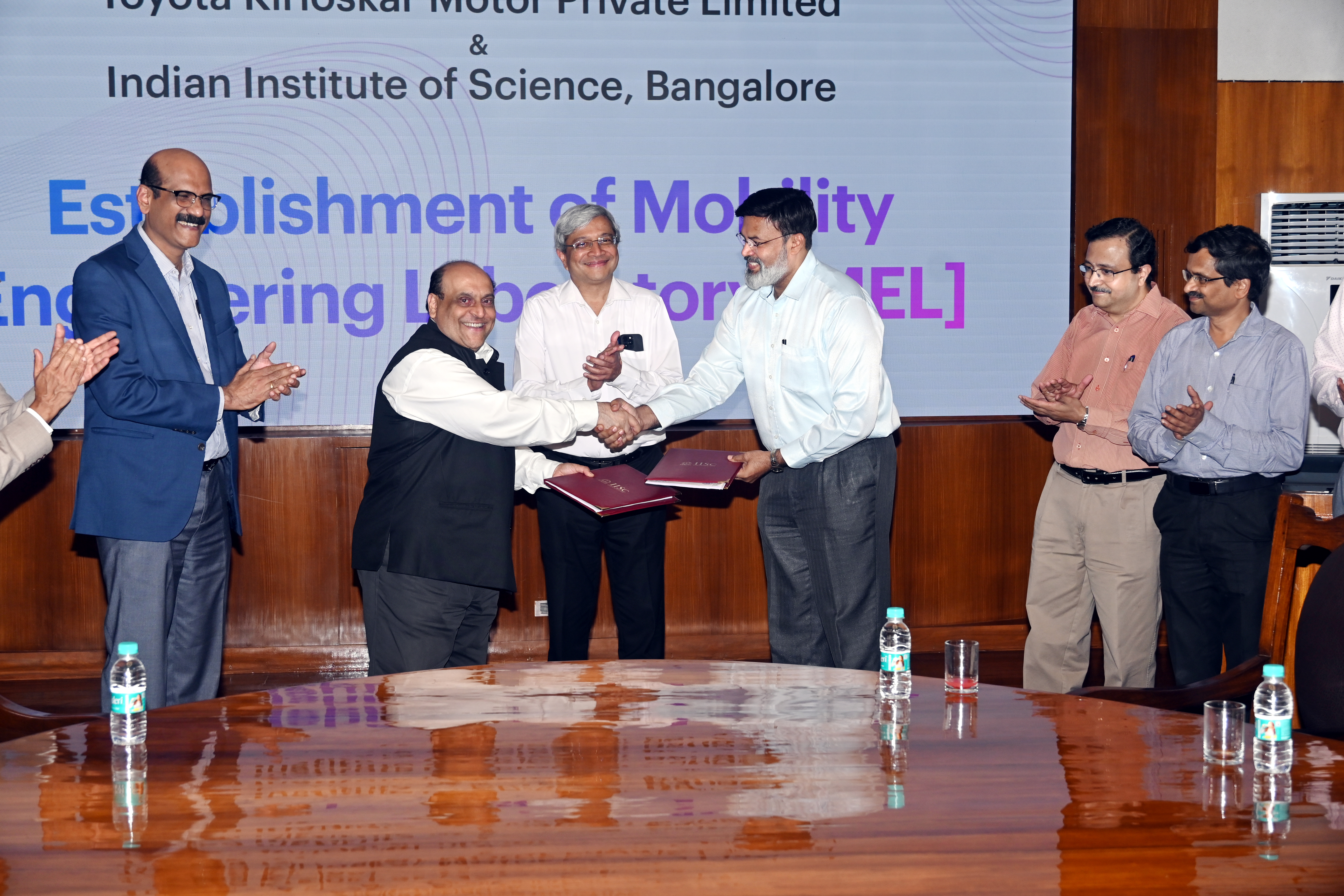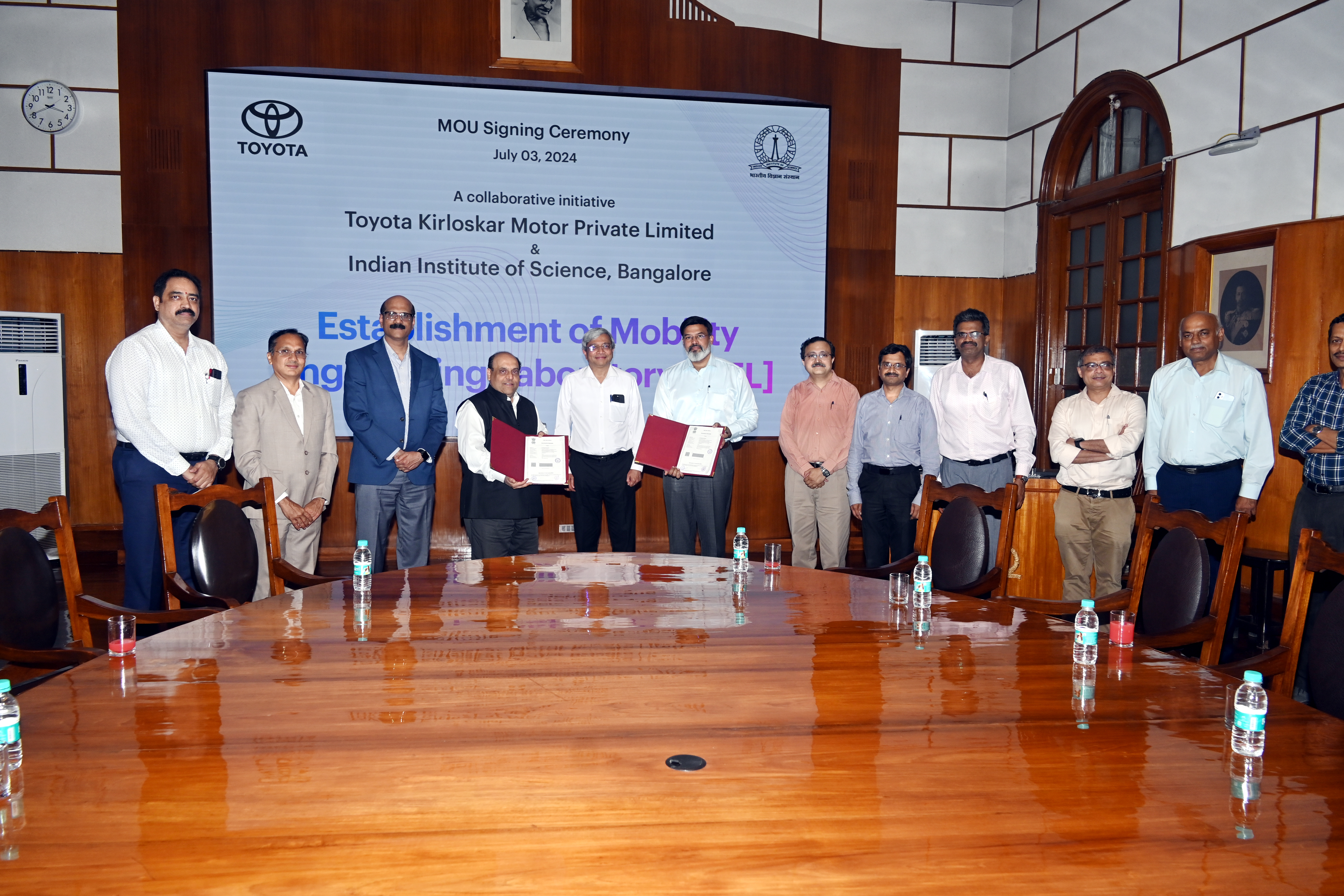
Toyota Kirloskar Motor (TKM) has joined hands with the Indian Institute of Science (IISc) to support the establishment of a Mobility Engineering Laboratory.
The mobility sector is experiencing a paradigm shift driven by climate change, driving the need to shift away from fossil fuels. In India, the automotive industry also faces the challenges of rapidly shifting to greener technologies and embracing the energy transition that is taking place globally, all the while retaining its competitiveness. IISc, with its strong industry connections and commitment to excellence is ideally positioned to leverage the Mobility Engineering Laboratory. This facility will help equip the next generation of engineers with the multidisciplinary skills needed to develop advanced mobility solutions. The laboratory will focus on electrified vehicle powertrain technologies, utilising Hardware-in-Loop (HIL) simulation for comprehensive testing and development.
From FY 2024 to 2027, TKM will support the establishment of the Mobility Engineering Laboratory and the procurement of essential equipment and infrastructure, such as a high-speed dynamometer, battery emulator, automation and control systems, vehicle simulation software, and mounting hardware for motors and engine. The laboratory will support research across various departments, including Mechanical Engineering and Electrical Engineering, among others.
A significant feature of the Mobility Engineering Laboratory will be the Hardware-in-Loop (HIL) Test facility for research and development of electrified vehicle powertrains. The HIL simulation combines real-world measurements with simulations, allowing for reproducible, fast, and cost-effective testing. It is crucial for vehicle development, enabling the testing of individual components such as engines, motors, and batteries, under simulated real-world driving conditions. This laboratory will facilitate the design and development of vehicle drivetrain configurations and control strategies, ensuring safety and performance while minimising costs and development time associated with physical prototypes.
Prof G Rangarajan, Director, IISc said, “We are delighted to join hands with TKM to establish the Mobility Engineering Laboratory. This facility will provide our students and researchers state-of-the-art tools and infrastructure to address critical challenges in the automotive industry, including emissions reduction and energy efficiency. The collaboration with TKM will bring together the best minds in academia and industry, fostering a culture of innovation and excellence. We anticipate many significant advancements resulting from this collaboration, particularly in the areas of electrified vehicle powertrain technologies. The laboratory will also play a crucial role in supporting our newly launched MTech programme in Mobility Engineering. Together, we will equip the next generation of engineers with the skills and knowledge they need to lead the transformation of the automotive industry.”
Mr Sudeep Dalvi, Senior Vice President and Chief Communication Officer, Toyota Kirloskar Motor said, “We are honoured to partner with IISc, an institution synonymous with academic and research excellence. This MoU marks a significant milestone in our efforts to foster innovation in mobility engineering. At TKM, we believe in the power of collaboration to drive technological advancements and skill development. By supporting the establishment of the Mobility Engineering Laboratory, we are not just supporting in enhancing research infrastructure but in the future of sustainable mobility and the development of skilled engineers in India. This laboratory will serve as a crucible for pioneering research, enabling the development of new technologies that address the pressing challenges of our times, such as climate change and the need for cleaner, more efficient transportation solutions. We are confident that this initiative will catalyse groundbreaking research and nurture the next generation of engineers who will drive the future of sustainable mobility.”




